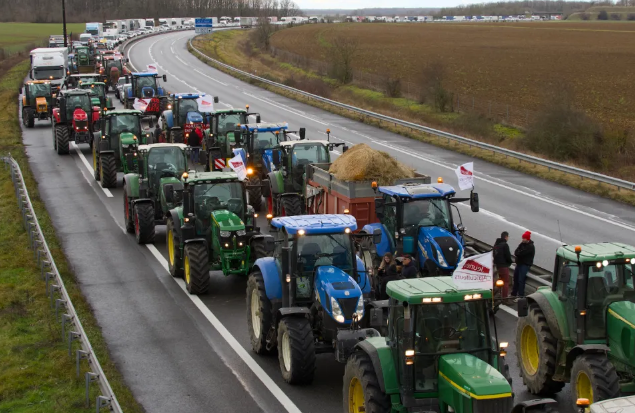The EU executive published a delegated regulation on Tuesday that will give member states more flexibility to apply one of the “good agricultural and environmental conditions” (GAEC) – environmental requirements needed to qualify for EU subsidies.
The move is part of a package of measures due to be unveiled on Friday aimed at meeting demands from protesting farmers to ease the administrative burden of the EU’s Common Agricultural Policy (CAP).
The regulation published on Tuesday includes changes to the obligation to keep areas of permanent pasture stable from 2018, providing greater flexibility for farmers and national administrations.
Permanent pastures enrich soil, sequester carbon and promote biodiversity. The GAEC 1 requirement stipulates that the size of the area to be conserved or restored should be based on the ratio of permanent pasture to total agricultural land in the reference area.
The French were among the first to express the view that such an obligation to conserve or restore pasture, even if the farmer had converted to arable, was too complex. They have repeatedly called for simplification.
On 1 February, French President Emmanuel Macron, at the last extraordinary meeting of the European Council, had already asked the European Commission to show “flexibility” on this issue.
Other measures being considered by the Commission include exempting small farms (less than 10 hectares) from GAEC compliance controls, and increased flexibility for EU countries that want to change their national CAP strategic plans.
On 6 March, environmental NGOs said that weakening GAEC requirements “would represent a rollback from the previous CAP period” in terms of environmental ambitions.
On Tuesday, Greenpeace EU agriculture campaigner Marco Contiero said that “farmers are experiencing serious hardship, but these proposals do little to address that and just strip away some of the last shreds of environmental protection in the EU’s farm policy”. Contiero noted:
The Commission is once again beating the ‘farmers versus nature’ drum, a fake fight that shifts the focus away from the root causes of the problems farmers face and in the long run makes their situation worse.
